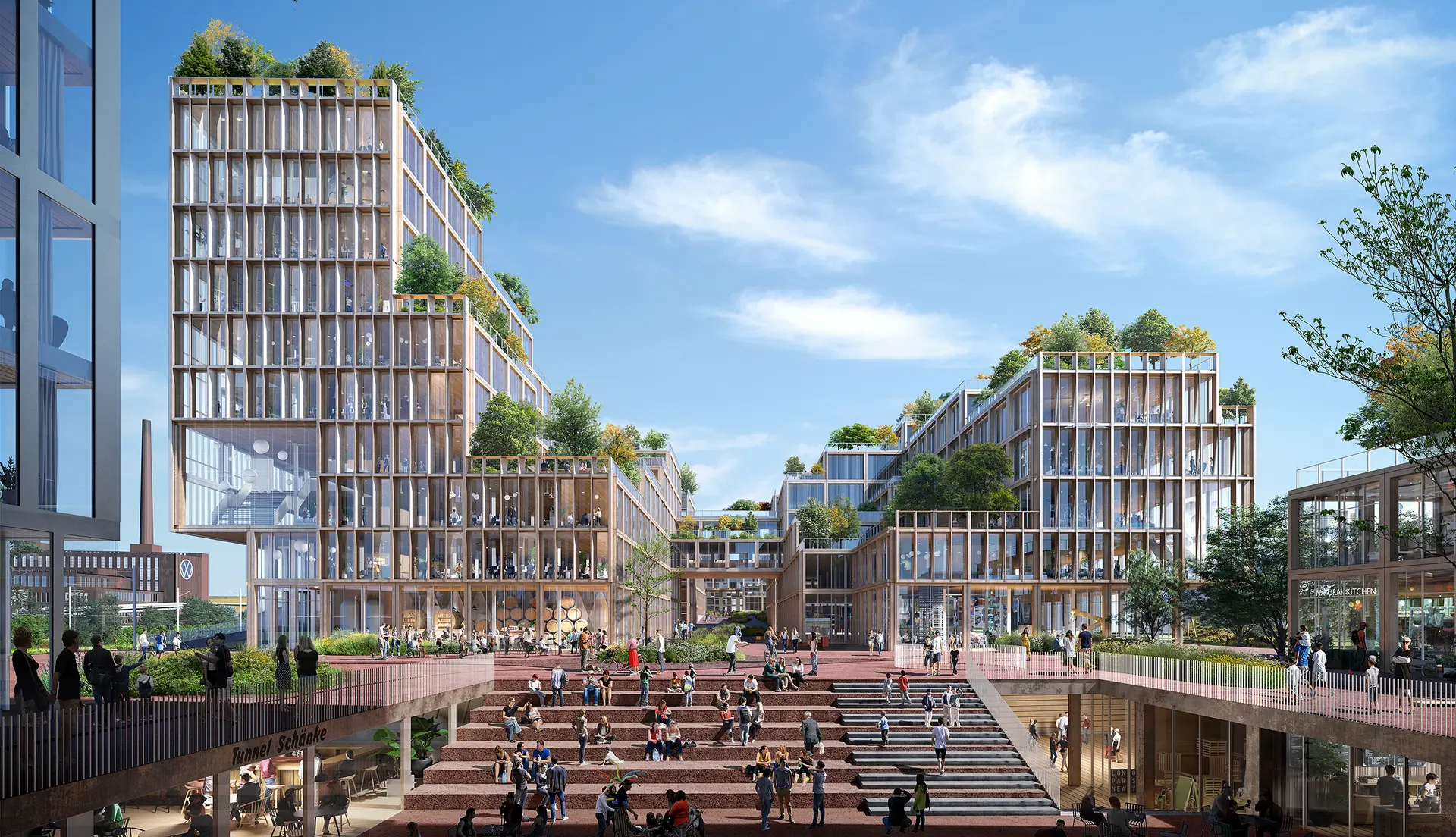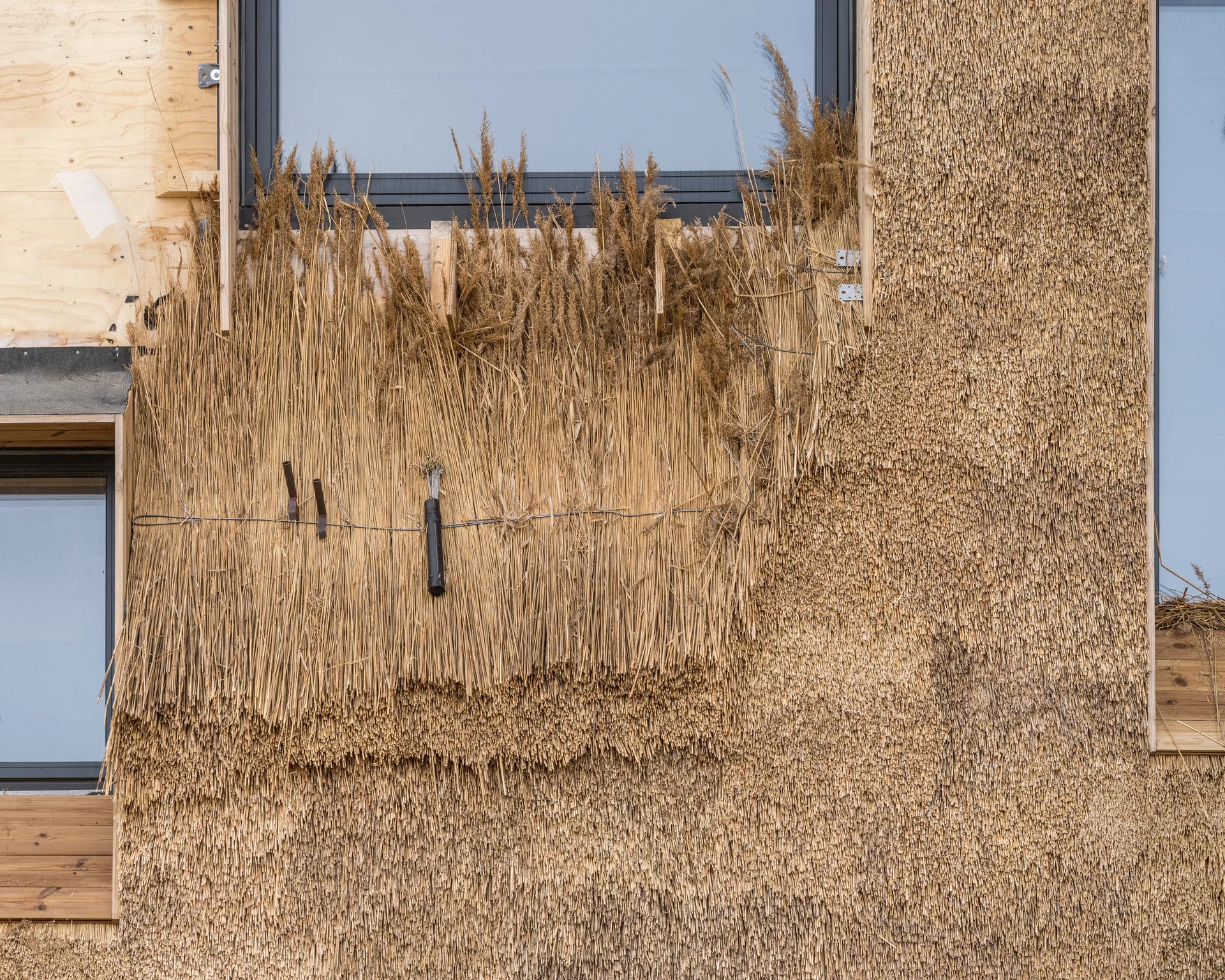We're strengthening the Design Leadership in Germany

With projects such as the Management Center Innsbruck, Wolfsburg Connect and most recently the new Innovation Campus Ehningen in Stuttgart, 2022 has been off to a great start for Henning Larsen in Germany. To further develop the strong foothold in Germany, we’ve strengthened the leadership in Germany with Lucas Ziegler as Associate Design Director.
This comes as a natural next step for Ziegler who has been with Henning Larsen since 2017, the past few years heading the competitions department in Munich. We sat down with Lucas to talk about current challenges and future ambitions.
What’s top of mind in the German construction industry right now?
"At the moment, there’s a huge focus on materials and making better and healthier choices that benefit our climate and environment. There’s a lot of buzz around wood, and with a project like Wolfsburg Connect being a hybrid timber construction, the first seed has already been planted for Henning Larsen to lead this conversation in Germany.
The German approach to architecture and design is highly driven by rationalism and functionality, but our nordic legacy and values makes Henning Larsen different from many of our German competitors due to our understanding of the way architecture and urban design affects people and how they interact. This approach also permeates the conversations around materials; we want the materials we work with to support the emotional aspects of architecture."
How is the German industry affected by the state of affairs in the world right now?
"Germany is still affected by the past two year’s pandemic and now also the situation in Ukraine. We don’t have the same access to materials as we used to, and there’s often a delay in deliveries. This obviously challenges the time schedule, but it also puts a restraint on the design that is new to us.
But, instead of looking at it as a problem, we’ve seized the opportunity to adjust our mindset and have come up with new and innovative solutions. Not having access to the materials we’re used to working with, has pushed us to rethink our choices – also in the longer run – which has proven to benefit both the projects and the planet."



